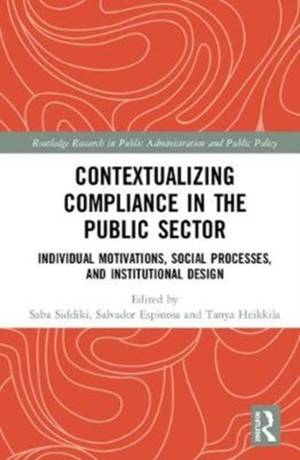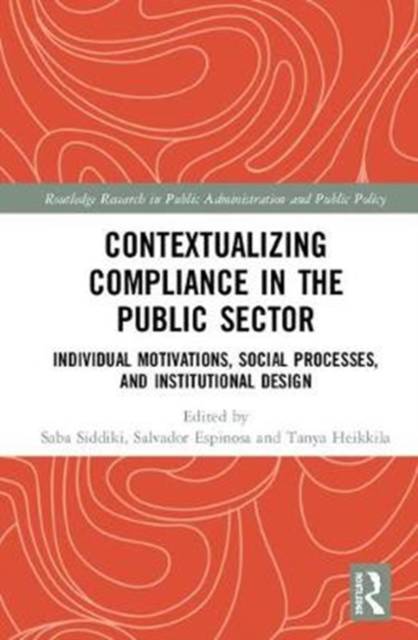
- Afhalen na 1 uur in een winkel met voorraad
- Gratis thuislevering in België vanaf € 30
- Ruim aanbod met 7 miljoen producten
- Afhalen na 1 uur in een winkel met voorraad
- Gratis thuislevering in België vanaf € 30
- Ruim aanbod met 7 miljoen producten
Contextualizing Compliance in the Public Sector
Individual Motivations, Social Processes, and Institutional Design
Omschrijving
Studying compliance to uncover whether compliance is occurring, and what motivates it, is central to the broader study of governance. Contextualizing Compliance in the Public Sector: Individual Motivations, Social Processes and Institutional Design develops an interdisciplinary approach for answering a classic and essential question in any rule-governed context: What factors influence the decision of an individual or organization to comply (or not) with governing rules?
Analyzing compliance from an interdisciplinary and multi-level perspective, this book examines the question of what motivates compliance in the context of salient policy issues, such as energy policy, water governance, police profiling, and drug policy, among others. The book brings together an interdisciplinary group of experts who explore the psychological, social, and institutional factors that shape compliance with formal rules embodied in laws and regulations and/or informal rules embodied in social norms. In doing so, they offer a platform for assessing individual compliance, compliance by or in the context of groups, and compliance on a systemic or societal level.
Contextualizing Compliance in the Public Sector: Individual Motivations, Social Processes and Institutional Designis an excellent resource for researchers and scholars of public administration and public policy conducting research on compliance, rules, behavior, and policy outcomes.
Specificaties
Betrokkenen
- Uitgeverij:
Inhoud
- Aantal bladzijden:
- 160
- Taal:
- Engels
- Reeks:
Eigenschappen
- Productcode (EAN):
- 9781138552371
- Verschijningsdatum:
- 10/07/2018
- Uitvoering:
- Hardcover
- Formaat:
- Genaaid
- Afmetingen:
- 152 mm x 229 mm
- Gewicht:
- 370 g

Alleen bij Standaard Boekhandel
Beoordelingen
We publiceren alleen reviews die voldoen aan de voorwaarden voor reviews. Bekijk onze voorwaarden voor reviews.










